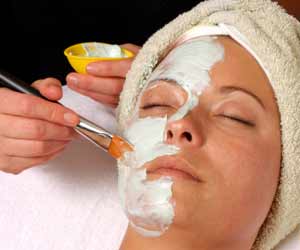Cosmetology Apprenticeships
If you want to learn cosmetology “on the job,” state cosmetology laws also provide for cosmetology apprenticeships, which are state-approved courses of study based upon a contract between a student and a licensee in a licensed salon. Guidelines typically set for apprenticeships include curriculum, training hours and services performed on clients by apprentices.

Cosmetology apprentices work as assistants in salons and learn by doing. Not all salons offer such programs, so if you want to go this route, you’ll need to locate a salon which will accept you as an apprentice. Similarly, licensed cosmetologists who want to conduct apprenticeships must obtain a special license before they are qualified to do so. Some apprenticeships are paid positions which allow the student to earn some income while training, while others reward the work the student puts in with experience and education. Generally, the benefit of traditional cosmetology school over apprenticing is that the number of education hours required before becoming eligible to take the examination for a license is less for those who take the formal classes. In most areas, an apprenticeship has a specific time period requirement as well as an “hours” requirement.
For example, a student enrolled in a full-time cosmetology study program in the state of Georgia can complete the training in one year by earning the 1500 hours of education required to take the cosmetology licensing exam. But an apprentice in Georgia must spend a minimum of 18 months as an apprentice and must earn 3000 hours as an apprentice to qualify to sit for the license exam – quite a difference! In either case, hours are awarded for the performing of specific services, and the hours must be divided among a range of services, so that the student/apprentice is experienced in all different techniques.
The cosmetologist and salon who provides the apprenticeship program must comply with the requirements set forth by their state’s cosmetology board. Many states require that the salon post a notice alerting customers to the fact that certain services in the salon may be performed by an apprentice. The apprenticeship program followed by the salon must be state-approved, and usually contains a requirement that apprentices complete in-classroom theory courses as a part of their training. Apprentice trainers must also provide the board of cosmetology in their state with the names of all individuals who are acting as apprentices. Salons who offer apprenticeships are usually inspected annually for compliance.


 Teach English in Asia
Teach English in Asia  Cruise Ship Jobs
Cruise Ship Jobs  Alaska Fishing Industry Jobs
Alaska Fishing Industry Jobs  Sharing Economy / Gig Economy
Sharing Economy / Gig Economy